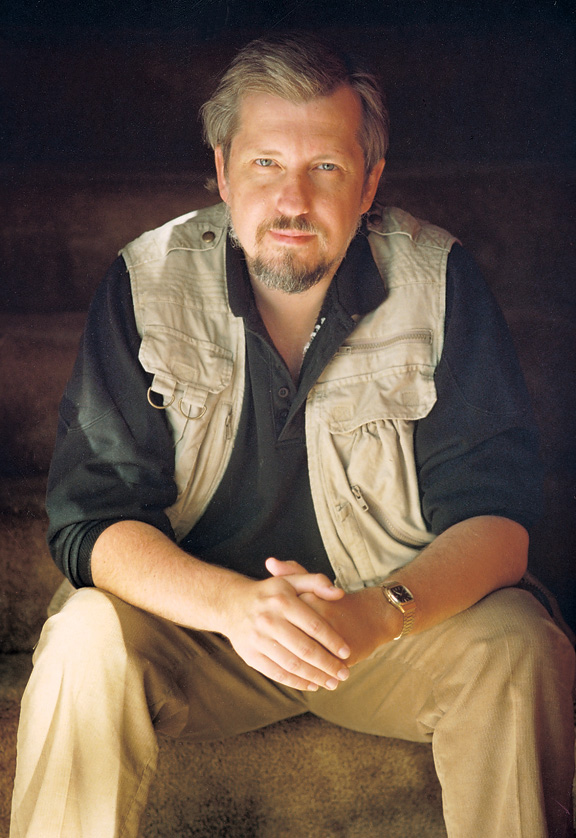 Dan Simmons ’70 established the Hockenberry Summer Internship in his late classmate's honor |
Three years ago, noted writer Dan Simmons '70 instituted the Hockenberry Summer Internship, which provides a generous living stipend and free campus housing to an outstanding writer of fiction. The internship is competitive; only one can be awarded each year.
The deadline is Monday, March 17. Submit the application form and other materials to a member of the creative writing faculty in the Department of English (Professors Hudson and Castro). Contact either professor to obtain a copy of the application form.
Description: The Hockenberry Summer Internship is offered annually to that junior who has demonstrated excellence in fiction writing and outstanding dedication to his craft. The award was established in 2000 by writer Dan Simmons ('70, Hon. '95) to honor the memory of his classmate Duane Hockenberry.
The award offers a living stipend of $2,500 plus a room on the Wabash campus and a private library carrel with computer support for eight weeks during the summer between the junior and senior years. Weekly mentoring for the student will be available through the English Department.
Criteria: The winner of the award will be that junior whose creative prose best demonstrates a combination of talent, vision, and labor, and who articulates clear and achievable goals for the internship period. Particularly eligible are those students who plan to work on a novel.
The Hockenberry Intern must reside on campus and remain in contact with the English faculty throughout the eight-week internship. The internship winner cannot be employed elsewhere during the period of the internship.
Interested juniors will submit the application form (see Professors Castro or Hudson) and a representative body of fiction of between ten and thirty pages to the creative writing faculty of the English Department by March 17th. The faculty reserves the right to make no award if the quality of submissions is insufficient. The winner will be contacted before Awards Chapel (April 24th).
Assessment: By September 1st of his senior year, the student will present a manuscript of polished work completed and revised during the summer internship period and a letter assessing that work to the Chair of the Department of English. During the Fall semester, he will give a public reading of his work on campus and be honored with a reception.